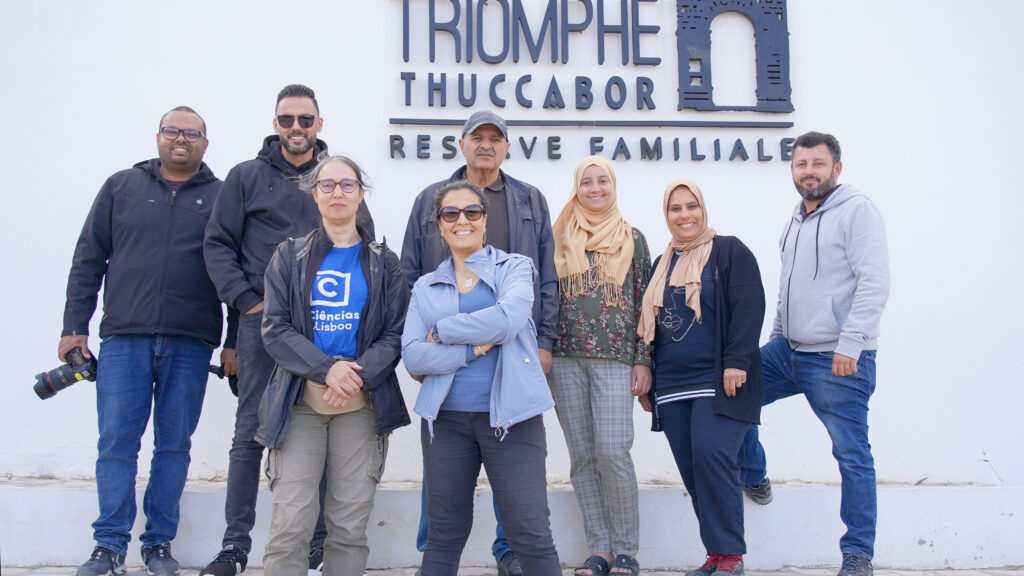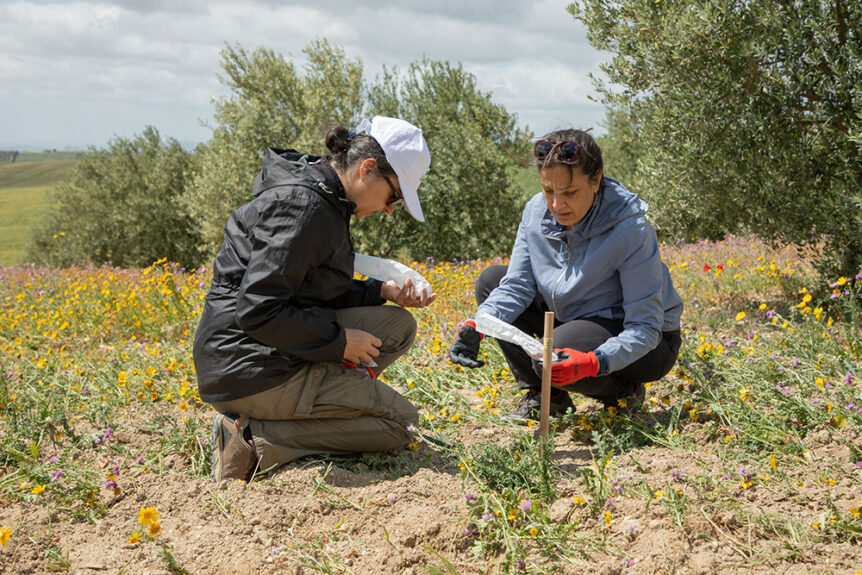Implementation of a new experiment in Tunisia olive groves.
To evaluate the ecosystem services of nutrient and carbon cycling, an experiment of litter decomposition, using the teabag method, was implemented in two of the olive trials in Tunisia. For this, the SIA partner Helena Serrano from FCiências.ID/FCUL (Portugal) paid a visit to the Olive Institute partners in Tunisia, led by Olfa Boussadia, from 15 to 19 of April 2024. Together they prepared and installed the experiment in Jammel and Toukaber, two distinct AEZs. The experiment is expected to last till September, when the decomposition rate of the leaves will be evaluated, and correlated to the different trials being executed by the Olive Institute, in the olive groves, that aim at improving production by means of sustainable agricultural practices: no tillage, compost fertilization, and legumes as cover-crops (fava beans and fenugreek). It is expected that the tests with more microbial biodiversity and abundance, or tests that modify edaphic properties more, will give a significantly different decomposition rate’s response.
Each teabag is placed in the soil and will be taken out after at least three months to see how much of its content is left. It is fascinating to discover the result of our hardworking little helpers in the soil, and how this work provides nutrients to a new generation of plants. This method was adapted from the Tea Composition initiative, based on the Keuskamp at al. 2013 article, and is described also in the Food and Agriculture Organization’s (FAO) (2020), Soil testing methods – Global Soil Doctors Programme – A farmer-to-farmer training programme, Rome.






This technique follows the steps below:
- Measure the weight of each teabag (this weight will be the initial weight before decomposition), after drying (air dry 7 days or ca.60° C for 48h);
- Mark the pegs for tagging by the adequate number reference;
- Take the teabags to the field for their incubation;
- Identify 4 sites per each plot (5 treatments, 3 plots/treatment in Toukaber and 3 of the 5 plots/treatment in Jammel) to incubate the teabags;
- Place a flagging peg in each identified site;
- Burry the teabags into the soil to a depth of about 8 cm below the soil surface close to the appropriate flagging peg;
- Leave the teabag incubated in the field for a period of at least 3 months;
- After field incubation, recover the teabags. Make sure to remove some of the organic materials attached to the teabag, including some soil;
- After their collection from the field, dry the teabags (air dry for 7 days or 60° C, for 48h) and then measure the weight of the remaining tea material (this would be the final weight);
- Then perform the calculations to determine the percentage of litter mass that was lost during the incubation period.
This is part of the objectives for work package 3 (WP3) of the SustInAfrica project which is to conceptualize and design demonstration trials based on specific African contexts, demonstrating resilient and sustainable agro-ecological production practices in targeted Agro-Ecological Zones (AEZs), assessing the impact of these practices on biodiversity and ecosystem services, and gaining insight into the feasibility and impact of upscaling these practices for wider adoption and replication, SustInAfrica partner, FCiências.ID/FCUL (Portugal) embarked on a field work in Tunisia (Olive Institute) to carry out this new experiment.

FCiências.ID/FCUL (Portugal) is the lead partner responsible for assessing the long-term sustainability and resilience of SustInAfrica approaches under WP3/Task 3.3. WP3 mainly focuses on the targeted design and implementation of demonstration trials for resilient and sustainable agricultural production and the delivery of ecosystem services in West and North Africa.

